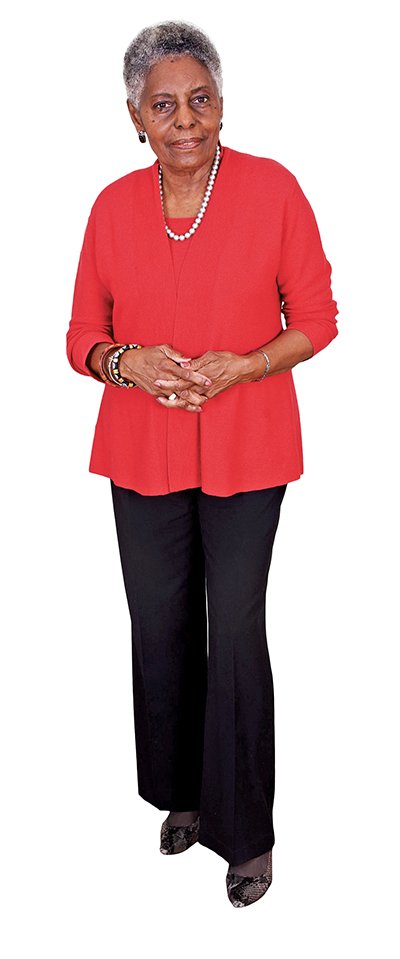After founding the Detroit-based Broadside Press in 1965, Dudley Randall wrote: “We (Africans in the United States) are a nation of twenty-two million souls, larger than Athens in the age of Pericles or England in the age of Elizabeth. There is no reason why we should not create and support a literature which will be to our own nation what those literatures were to theirs.” Broadside grew during the Black Arts Movement as a leading press that introduced unknown voices in poetry to the literary world and in 2015 merged with fellow independent publisher Lotus Press, becoming Broadside Lotus Press. Today, Dr. Gloria House, senior editor and vice president at the press, continues its mission to celebrate African American literary excellence, work she began as a volunteer at the press in the 1970s. A poet in her own right, House has published four books under her chosen African name, Aneb Kgositsile. She is also an educator, a mentor, an activist, cofounder of the Detroit Coalition Against Police Brutality, and the 2019 Kresge Eminent Artist. Recently House spoke about the history of Black independent publishers and the future and legacy of Broadside Lotus Press as it celebrates fifty-five years.

Dr. Gloria House (Credit: Shawn Rochelle)
Has your social justice and civil rights activism influenced the editorial work you do at Broadside Lotus?
What I’ve been led by is that, when Mr. Randall was editing, he wasn’t applying his own political perspective. He was looking at the quality and the excellence of the poetry itself, and accepting poets from very different political backgrounds. I try to continue what I have learned from him about being open to the beauty of the poetry of whoever is writing. Wanting more Black voices to be on the world’s stage, maybe that is an aspect of my politics. We have all this talent and very few people know about it.
What role have Broadside Lotus Press and other independent Black publishers played within the literary community over the years?
Nikki Giovanni, Sonia Sanchez, Audre Lorde, Etheridge Knight—all of these poets we know now were first published by Dudley Randall and later picked up by the major publishing houses, so Broadside was sort of the bedrock. Then Naomi Madgett opened her publishing house, Lotus Press, right here in Detroit. In the nineties jessica Care moore started publishing poets of her own generation [through Moore Black Press]. Detroit has been like a mecca of Black independent publishing. We’ve influenced Third World Press in Chicago. Without these independent presses, I don’t know if America would know very much about African American literature.
During this critical time in American history, how can writing best serve our society?
Writing that digs deep for a certain authenticity and truth-telling is very important for this period, when we’re inundated with so much that is false or a misrepresentation of things. For a writer to be as honest as possible with herself about what she’s seeing, how she’s responding to that, and not attempting to disguise anything, I think that’s the most important path for a writer nowadays.
What do you envision for Broadside Lotus Press in the coming years?
I’m hoping that younger folks will take the press in hand, that they’ll use the works in our repertory and get them out in all kinds of new ways. The whole tradition of the single poet standing in front of an audience all by herself and reading from text—we’re way past that, and we have the capacity to move this beautiful literature in so many exciting ways.
From your tenure at the press thus far, what is one memory you cherish?
At a certain point Dudley said to me, “I have a feeling you must write poetry. Don’t you write poetry?” I said, “Yes,” and he said, “I’d really like to read the poems. Will you let me read the poems?” I said, “Yes, of course,” but I was reluctant because at that point I hadn’t begun to think of myself as a poet. One day Dudley appeared at my house and said, “I just came to pick up the poems.” I went upstairs and found my little folder that had followed me all over the world from UC Berkeley to down South when I was working at the Student Nonviolent Coordinating Committee and up to Detroit. Not too long after that, he came back with a proof of my first book. The icing on the cake was that while he was going through the poems, he called Gwendolyn Brooks—they were good friends—and he read some of the poems to her. She said, “Oh, this isn’t a new poet; this is a developed poet—this poet is already on her way.”
India Gonzalez is a poet, educator, and artist. She lives in Harlem, in New York City.








